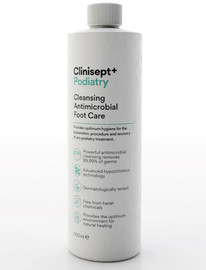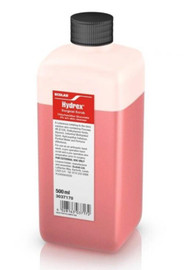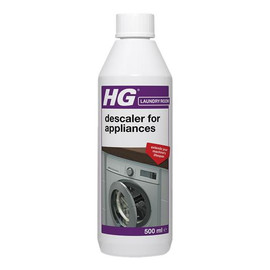Milton Sterilising Fluid allows you to sterilise in just 15 minutes, killing bacteria, viruses, fungi and spores (tough dormant bacteria). It has been used in hospitals for many years as a simple and very reliable method.
What is Milton?
Milton is a stable solution of sodium hypochlorite which completely destroys all viable micro-organisms including spores. It is non-toxic and non-tainting and when in contact with protein, breaks down to form:
-
Water sodium chloride (salt)
Milton is therefore totally safe to use and can be applied directly to the skin even swallowed without harm. Using the simple 3-step Milton Method, the sterilising system is clinically proven to kill all micro-organisms within 30 minutes and Candida Albicans in 1 minute. Each solution lasts 24 hours and with no need to rinse is an easy and convenient way to keep feeding utensils and teethers sterile all day.
It is important to sterilise everything that goes into babys mouth, including bottles, soothers, teethers and toys. It is particularly important to sterilise feeding utensils, such as bowls and spoons as babies are very vulnerable to infection during weaning. Always wash hands thoroughly, particularly after the toilet, nappy changes or handling food.
Why Milton?
Milton pioneered the sterilisation of baby bottles and teats, enjoying a long and rich history which attests to its efficacy, safety and convenience. Based on more than 50 years of extensive medical research, Milton has become a well-established, highly respected name synonymous with infant care.
The Milton Method is widely accepted by hospitals as the superior sterilisation method to boiling and is supported by extensive clinical research and data to evidence that Milton is not just safe, easy and convenient, but also highly effective and reliable. Medicated shampoo containing: alcoholic extract of coal tar 5% w/w, also contains a conditioner. Medicated shampoo containing: alcoholic extract of coal tar 5% w/w, also contains a conditioner.
Why sterilise?
In the first year of life, a babys immune system is unable to fight off many of the disease causing micro-organisms that cause food poisoning in adults. However, in babies these micro-organisms can result in gastroenteritis, a potentially more serious condition which can quickly lead to dehydration and hospitalisation.
Common causes of gastroenteritis in babies are:
-
Rotavirus air borne virus passed on from person to person. Accounts for the majority of hospital admissions with diarrhoea for the under 5s
-
Campylobacter the most common type of food poisoning, often contracted from cats and dogs
-
Salmonella often due to undercooked foods
-
E Coli 0157 from raw meat and often passed on from not washing hands after the toilet
-
Listeria from poor hand washing
Spores are bacteria in a dormant (non-active) state. They have a very tough coating around them and are very difficult to destroy. If present in food that is re-heated, for example, these spores will become active again and multiply rapidly. Even breast fed babies are at risk of infection. The only effective way to protect your baby is sterilise feeding utensils, soothers and teethers.
What do I need to sterilise?
-
Bottles and teats
-
Breast pumps
-
Soothers
-
Storage containers for breast milk
-
Weaning items - plastic bowls, plates, spoons etc
-
Teething items
To ensure you eliminate harmful germs, you can use a diluted solution of Milton to;
-
Wipe the changing mat.
-
Clean the nappy bin.
-
Soak baby's plastic toys.











